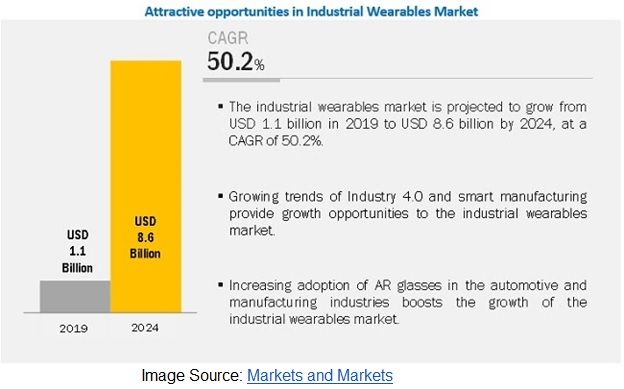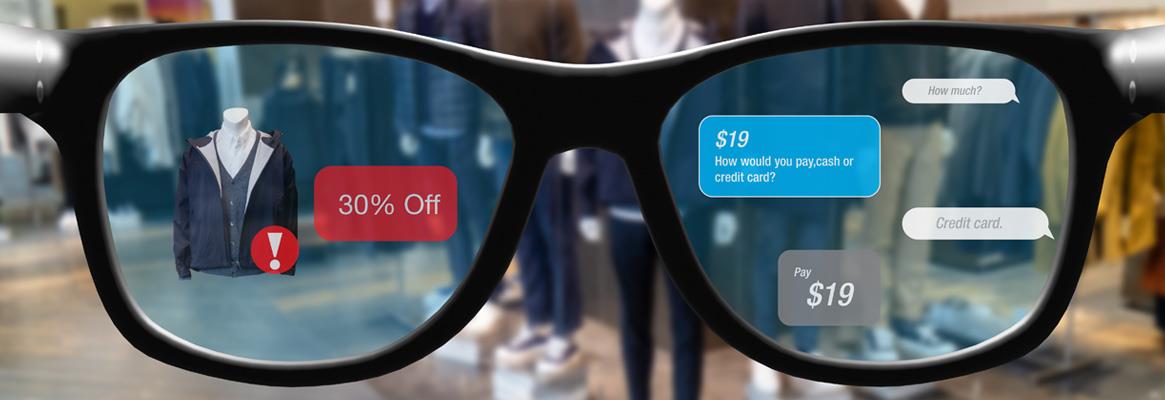Smart glasses may be the future of manufacturing thanks to their ability to help get production flowing with speed and accuracy. The benefit of smart glasses applied in manufacturing is evident through the manufacturing industry as a whole. As the industry continually feels the effects of a gap in skill set, technology is its future.
Smart glasses infused with technology such as Artificial Intelligence (AR) ease the pressure applied on the industry as the gap continues to widen. Only 1.4 million jobs out of 3.4million jobs are being filled. Smart glasses can be applied across all levels of the manufacturing process and can help with training and continued staff development, cutting costs and increasing turnover times.

The fashion industry in the wake of the pandemic has taken a hard hit. Fashion houses and events have been cancelled or postponed and the lack of going out or socialising has indeed changed trends among fashionistas as loungewear becomes popular and avoiding stores become the new normal while people continue to shop online for clothing and accessories. Sooner or later, the industry will heal and go back to its usual vibrant self, and when it does, technology in the form of smart glasses will be there to help it flourish and here's how.
Smart Glasses and Manufacturing
Smart glasses have the ability to boost digi-transformation concerning textile manufactures. Some companies have deployed a technology accelerator that is set to shape technology innovation for the manufacturing sector. For example - the programme is delivered by a company that deploys smart glasses to track digital strategies and, of recent, navigate Covid-19 restrictions in the manufacturing process of textiles.
The wearable smart glasses enable technology specialists to perform virtual end-to-end production line walks. As the pandemic has made it hard for businesses to continue as usual without face-to face interaction, technology has been the answer.
The virtual visit via the smart glasses enable advisors and business personals to dial into a conference call and view each manufacturing operation as it is being performed in real time.
Not only does this bring transparency to the process helping to identify issues, but also helps to prompt discussion for a healthier business overall. The fashion industry is always changing and transparency like this will help manufacturers stay up to date and on trend.
The introduction of smart glasses has helped to overcome access restrictions caused by the pandemic as well as limitations. To support a manufacturer's digital transformation, key insights are needed. Using wearables like this also give manufacturers valuable information and opportunities to test their emerging technology and how well they are doing for business and how they can be implemented.
The smart glasses come with a 4G dongle which helps keep connection in the event of a drop in connection. Tech glasses also have the capabilities to work offline allowing manufacturers to record video of their production and be reviewed at a later date. Digitising textile manufacturing in this way can help to increase work flow and control resulting in better garments.
Wearables and Fashion
Wearable technology is set to change the future of fashion. As technology continues to advance, becoming smaller and more decried while still being sophisticated and functioning, the doors for innovation are blown wide open. Some proposed ideas such as colour changing clothing, or smart jewelry may seem farfetched, but the application of technology holds the power to make them reality.
The pandemic has increased awareness over health issues and as the sales of wearables increase, many are becoming health conscious. As the trend continues into the future, there is a chance we could see the future of fashion change as sport brand embedded sensors into fitness clothing that are able to track heart rate and pulse and a key fitness metrics in real-time as we exercise, reducing the need for wrist wearables.
The future of fashion, most like other industries is dependent on the advances in fashion. However, the pandemic has caused some manufacturing issues concerning chips for smart devices which could push innovation back, meaning we are less likely to see a influx of wearable fashion soon. However, knowing it's in the process makes the fashion sector even more interesting and exciting.















Comments